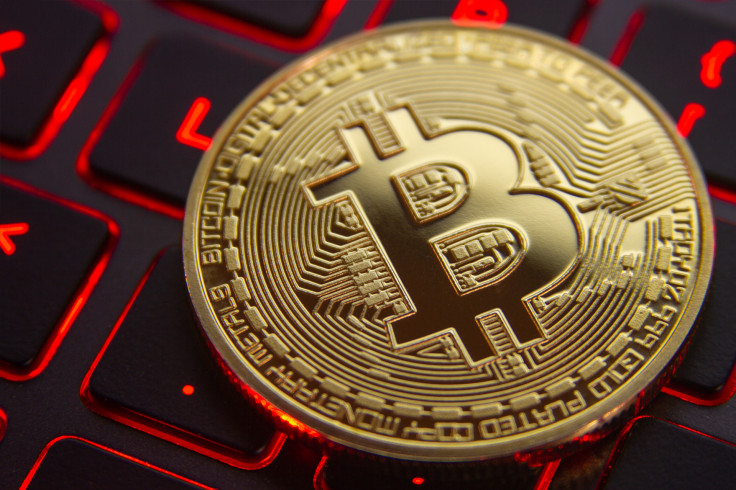
Officials from the U.S. Securities and Exchange Commission announced the approval of Spot Bitcoin Exchange-Traded Funds (ETFs) on Wednesday, amid high anticipation within the crypto ecosystem for the potential influx of billions of dollars as it becomes easier to invest in this digital asset.
The news brings two significant developments. On one hand, BlackRock, VanEck, Invesco and Galaxy, ARK 21Shares, Grayscale, and other potential issuers, among the 11 expecting to launch Spot Bitcoin ETFs, will effectively be able introduce their digital assets to this part of market in the short term.
On the other, within the crypto ecosystem, there is anticipation that the flow of large volumes of dollars into the system will generate a significant fluctuation in the price of Bitcoin. This development occurs three months before the scheduled halving event, which is also expected to contribute to an increase in the value of the cryptocurrency.
Exchange Traded Funds (ETFs) are financial products with over 20 years of history in the U.S. Defined as traded and indexed investment funds, they track a stock index and their profitability depends on that index.
"Investors today can already buy and sell or otherwise gain exposure to bitcoin at a number of brokerage houses, through mutual funds, on national securities exchanges, through peer-to peer payment apps, on non-compliant crypto trading platforms," said SEC Chairman Gary Gensler in a statement on the agency's approval.
Some of the most popular ETFs include SPDR S&P 500 ETF (or SPY, which exactly replicates the performance of an equity index tracking 500 of the most influential companies on the New York Stock Exchange), or QQQ ETF (which mirrors the Nasdaq).
"What is new about these ETFs is that now it will be for spot holdings, given that the existing ETFs were exclusively for investments in cryptocurrency futures. There is a big difference in terms of risk at that point because in one you have the underlying asset (spot) while in the other you don't (future)," Matías Harari, from Adcap Grupo Financiero's Research team, explained to The Latin Times.
Ignacio Sniechowski, Head of Research at Grupo IEB, detailed to The Latin Times that the existing ETFs linked to the crypto ecosystem until today are 'ETFs that track BTC futures, such as $BITO, as well as thematic ETFs whose holdings include shares of companies engaged in mining, such as $MARA, and exchanges, such as $COIN.'"
In recent years, the SEC consistently rejected proposals for Bitcoin spot ETFs, expressing concerns about potential market manipulation. This hesitation arises from the considerable influence major investors could exert in an ecosystem known for significantly higher volatility compared to other assets, such as gold, oil, or shares of a company.
"The significant interest surrounding these ETFs primarily stems from the fact that it opens the door for institutional investors to buy Bitcoin, bringing in substantial monetary flows. In other words, it allows the entry of new significant players into the market, subsequently making it more efficient, with increased trading volume and liquidity, among other factors," Harari said.
"It simultaneously facilitates the entry of retail investors, who may be aware of cryptocurrencies but not familiar with the processes involved in acquiring them through brokers like Binance, along with the associated risks, such as fraud, as seen in the FTX case, and many others. Additionally, it addresses concerns regarding ease and convenience for private holdings."
Maximiliano Donzelli, Head of Research at IOL Invertironline, explained to The Latin Times that beyond facilitating investment in Bitcoin for a broader audience, such as retail investors, financial institutions, and companies, the approval "would lend more legitimacy to cryptocurrencies. An ETF is an investment product regulated by the SEC, meaning it adheres to certain standards of transparency and investor protection."
"On the other hand, Bitcoin spot ETFs could increase liquidity in the Bitcoin market. ETFs typically have high trading volumes, making it easier to buy and sell Bitcoin, which could reduce price volatility," he added.
How the Approval of Bitcoin's Spot ETF Affects Latin America
Latin American nations and the United States stand out in the crypto ecosystem given their widespread adoption, as highlighted in a recent study conducted by Chainalysis. This trend is driven by various factors, including the utilization of cryptocurrency for remittance transactions and its role in store-of-value transactions.
However, in Latin American countries the availability of Bitcoin ETFs might vary. For example, in Argentina "the quotation of an ETF receives the same treatment as a CEDEAR (equity instruments traded in Argentine pesos within the local market, representing shares of significant international companies). That is, it must have a local depository and also approval from the Argentine National Securities Commission", said Sniechowski.
"In CEDEARs, Argentina only has shares of Coinbase ($COIN), a cryptocurrency exchange, Bitfarms ($BITF), a Canadian company whose core business is cryptocurrency mining, and Hut 8 Mining ($HUT), another company dedicated to mining. However, there are several platforms allowing the purchase of $BTC in pesos. Currently, there are no listed ETFs as CEDEARs," he added.
Donzelli, from IOL Invertironline, highlighted that a second way to buy ETFs from Latin American countries is through an investment account with access to the U.S. market, which offers a greater variety of these assets.
© 2025 Latin Times. All rights reserved. Do not reproduce without permission.





